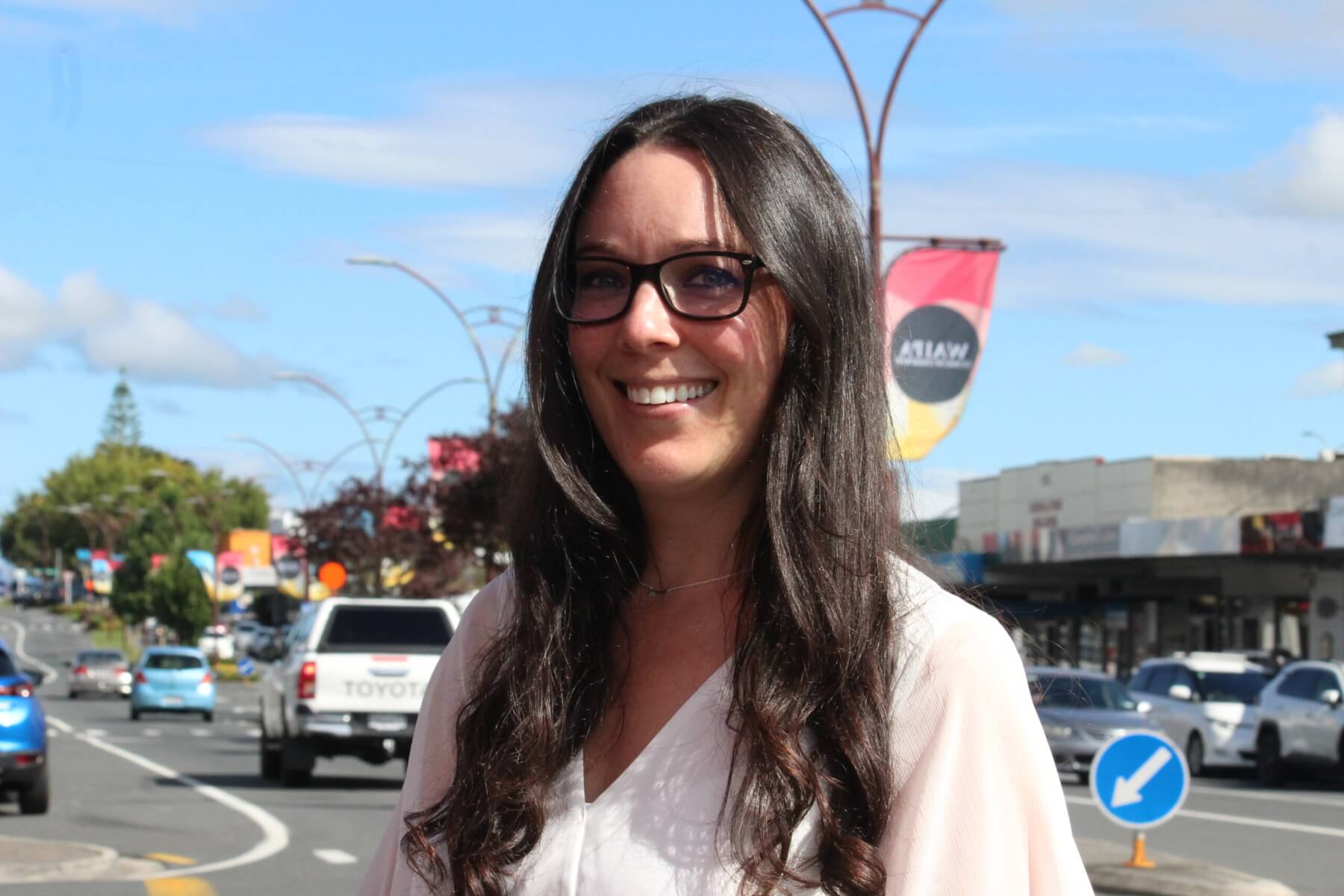
Janine Krippner is back home in Waipā where she is surrounded by volcanoes, and family. Photo: Mary Anne Gill.
After years of being made to feel I was fabricating the pain I was in, at 21 years old I was diagnosed as a “classic case” of Ehlers-Danlos Syndrome (EDS).
For me this involves variable pain most days in different ligaments and joints, hypermobility that resulted in torn tendons before I figured out how to strengthen my body, and a myriad of other symptoms that at first seem unrelated. May is EDS awareness month, meant to shine a light on this disorder partly because of how often it takes years of isolation and pain before a diagnosis is made. While most of my writing and speaking is about volcanoes, EDS has been a big part of my experience, like anyone else who moves through life with physical or mental illness or disability.
EDS is a group of connective tissue disorders with a range of severity, some fatal. It can impact joints, skin, teeth, organs including the heart… there is an impressive list. If you met me in the street, you would never know. I exercise several hours a day out of a genuine love of it (something my teenage self would have scoffed at) as well as necessity, plus as a volcanologist I have a career with intensive field work in hazardous and exotic places. I need to be able to work very long hours in an office and perform strenuous physical activity.
It has been a lifelong journey figuring out how to work around the more difficult aspects. There are some things I can’t do without repercussion, for example, standing or sitting for hours can be agony. There are also the days where I experience debilitating pain. Throughout all of this I feel positive, optimistic, and have an unrelenting drive to keep working towards improvement as it evolves. Being warned that I could end up in a wheelchair was a pretty good motivator for me, especially with my passion for working on mountains that tend to erupt.
I don’t share my story for sympathy, I don’t need it. I share it because so many of us are struggling with something, and the fear of being judged for it or seen as somehow weak can be very real.
I could have used the encouragement when I was younger, I used to fear that people wouldn’t hire me to work on volcanoes if they knew. The truth is, EDS has made me more resilient, resourceful, and actually healthier with all the adjustments I have made. I do, however, acknowledge that I am fortunate that it isn’t much worse, and others have much more to deal with. While I do not consider myself disabled, many with EDS are.
We can’t necessarily see the hardships people struggle with, and we likely wouldn’t recognise the strengths they have forged because of them.
Taking a moment to remember that we all have unseen hardships is perhaps something we could remember more in everyday life where division has been on the rise. If you are someone who needs to hear love and encouragement that you can do hard things even with additional challenges, this is for you. Keep going.









